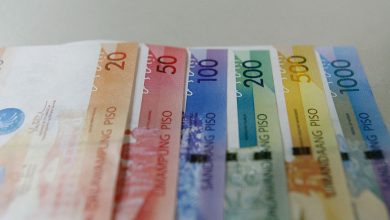Hot money swings to net inflows in Nov.

By Keisha B. Ta-asan, Reporter
FOREIGN portfolio investments reverted to a net inflow in November, ending two straight months of outflows, as global financial market conditions improved, the Bangko Sentral ng Pilipinas (BSP) said.
Foreign portfolio investments registered with the BSP through authorized agent banks posted a net inflow of $672.86 million last month, 37.7% higher than the $488.75 million net inflow a year earlier.
The November figure was a turnaround from the $328.19 million net outflow in October.
Foreign portfolio investments are known as “hot money” because of the ease with which they can enter or exit a jurisdiction, as opposed to foreign direct investments.
In November, gross inflows jumped by 49.5% to $1.57 billion from $1.05 billion a year prior and by 64.9% from the $954.38 million posted in October.
The BSP said investments came from the United Kingdom, Singapore, United States, Luxembourg, and Hong Kong, which together accounted for 91.9% of the monthly total.
The funds mainly went to peso government securities (71.4%), while the remaining 28.6% went to Philippine Stock Exchange-listed securities of banks, holding firms, property, transportation services, and food, beverage and tobacco.
Meanwhile, gross outflows in November increased by 59.5% to $902.01 million from $565.71 million in November 2022.
Month on month, outflows fell by 29.7%.
The BSP said the United States received 58.6% of the total outward remittances in November.
China Banking Corp. Chief Economist Domini S. Velasquez in a Viber message said improving financial conditions globally likely drove investment inflows to emerging markets such as the Philippines.
“Forward guidance from major central banks regarding reaching the peak of interest rate hikes has fueled bullish sentiment in financial markets. In the Philippines, there has been strong investor appetite for bonds and stocks, driving portfolio inflows,” she said.
The US Federal Reserve has kept borrowing costs steady at 5.25-5.5% during its November meeting. Fed officials have recently signaled that policy tightening may be over amid slowing inflation.
Back home, the BSP left its key interest rate unchanged at a 16-year high of 6.5% in November.
The Philippine central bank hiked rates by a total of 450 basis points from May 2022 to October this year to tame inflation.
Rizal Commercial Banking Corp. Chief Economist Michael L. Ricafort said the sharp decline in global crude oil prices, which largely helped bring down inflation, contributed to positive investor sentiment.
“As a result, the worst/bottom has been seen already in the US and local financial markets in October 2023 and started to post hefty gains since November 2023,” he said in a note.
Headline inflation slowed to 4.1% in November from 4.9% in October. Inflation averaged 6.2% in the 11-month period.
“Thus, net foreign portfolio investments data improved to net inflows amid the gains in the local fixed income/bond markets, peso exchange rate, and stock markets; bargain-hunting/bottom-fishing activities in line with the gains in the US stock and bond/Treasuries markets,” Mr. Ricafort said.
For the January to Nov. 30 period, foreign portfolio investments yielded a net outflow of $42 million, a reversal from the $794 million net inflow a year ago.
“With recent guidance from the Federal Reserve suggesting more interest rate cuts in 2024, we anticipate that inflows will continue, especially by December,” Ms. Velasquez said.
Mr. Ricafort noted that hot money inflows could further improve in December amid market expectations of a possible Fed rate cut as early as March 2024.
“Since Fed rate cuts would lead to further gains in the fixed income/bond markets, stock markets, and lower US dollar and stronger emerging market currencies,” he said.
Following its December meeting, Federal Reserve Chair Jerome H. Powell said monetary tightening may likely be over as inflation continues to fall in the US.
Meanwhile, BSP Governor Eli M. Remolona, Jr. said Philippine inflation is not yet out of the woods, and borrowing costs may need to stay higher for longer in 2024.
“Unless there are significant disruptions, it is likely that hot money inflows will surpass those of 2023, leading to continued positive momentum in 2024,” Ms. Velasquez added.
Earlier this month, the BSP lowered its hot money forecast to $1 billion net inflows this year from $2 billion previously.




